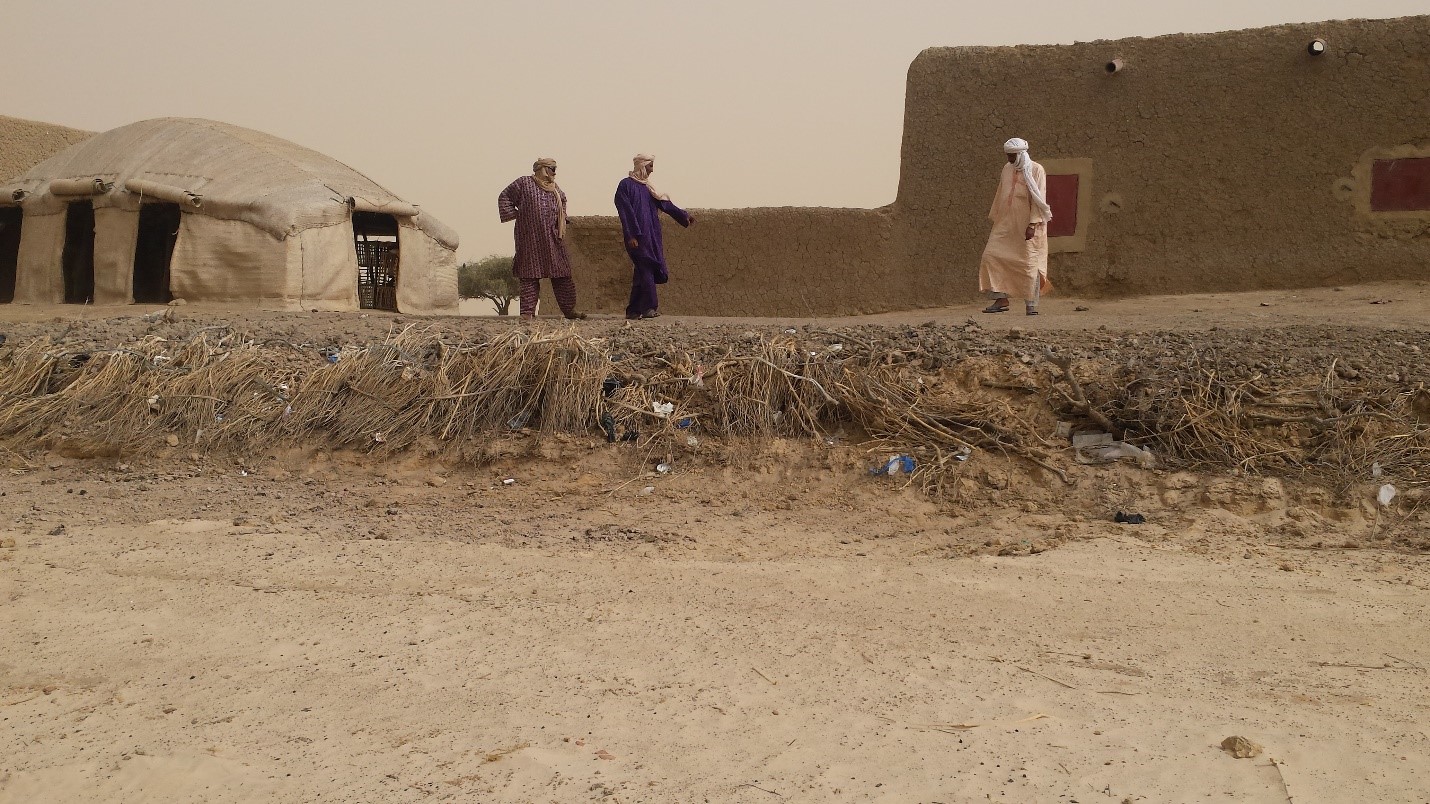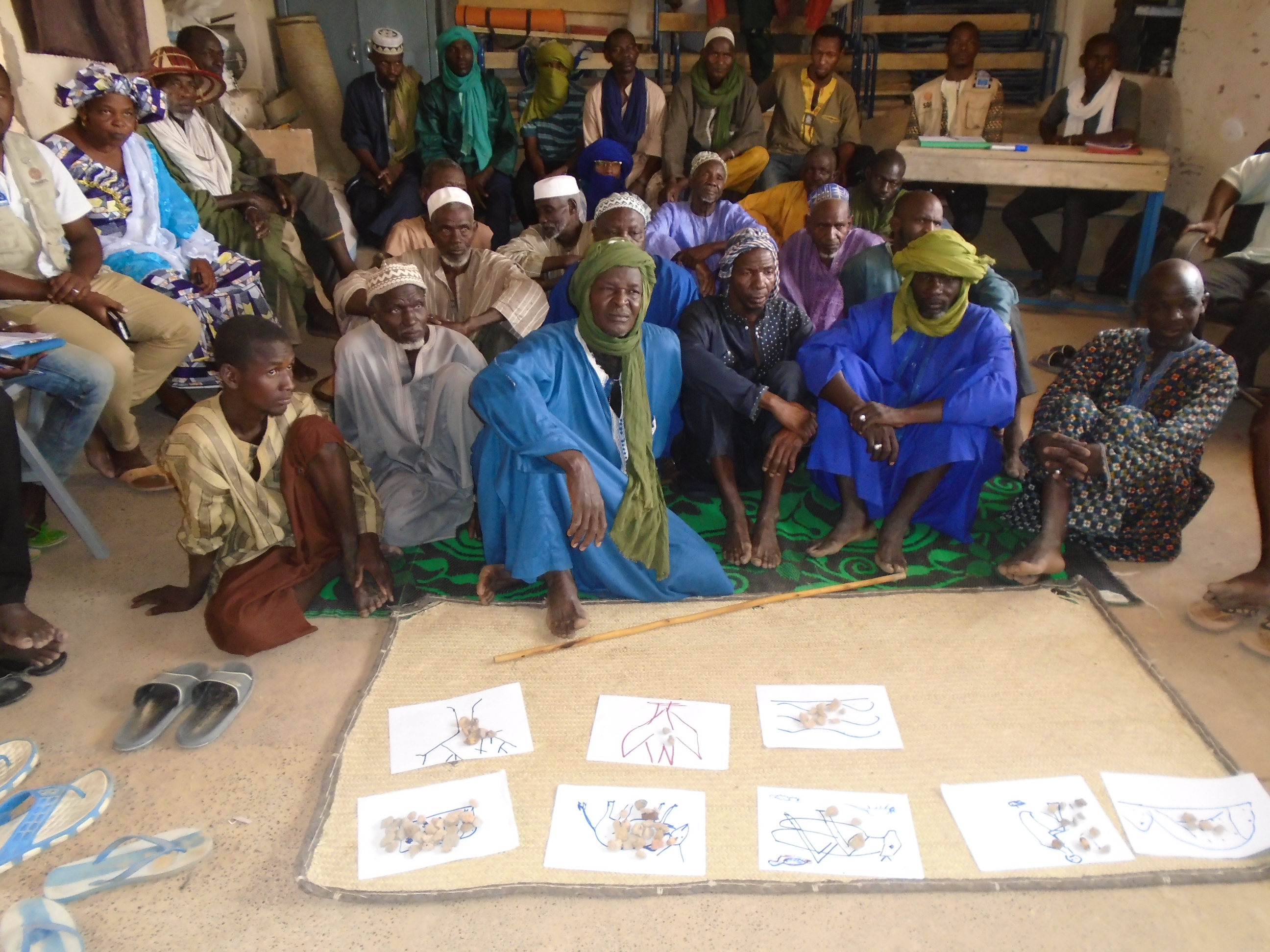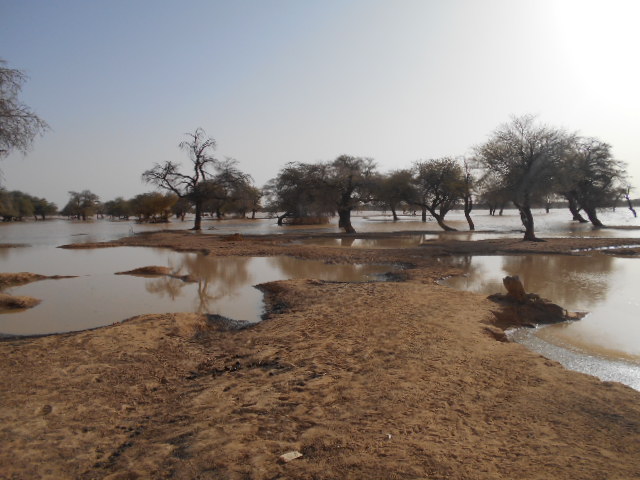In the northern regions of Mali, climate hazards are affecting community livelihoods and access to basic services. Drought, floods, crop and livestock pests affect both the quality and quantity of crops and yields from, thus compromising agricultural, fishing and livestock activities in the area, where the majority depends on these activities for their livelihoods. In some areas, frequent flooding significantly hampers access to basic services and infrastructure such as markets, water points or health centres.
ACTED has been working since 2016 to strengthen climate risk prevention in northern Mali with six other NGOs within the framework of the Alliance for Community Resilience (ARC), and with the support of Food for Peace (FFP).

Strengthening community-based disaster risk reduction mechanisms to strengthen community resilience
Ahmed, a farmer, lives with his wife and their four children in Tonka village, Timbuktu region. He runs small business activities to support his family’s needs, alongside with agricultural activities. During the rainy season, when gutters are full, rainwater is stagnates in front of his house, just like for most of the families in Tonka village, located near the Niger river.
In 2017, significant amounts of rain with devastating impacts for the communities were registered in Tonka village. The houses are made of banco, a clay-like material incapable to resist heavy rains. The rain destroyed houses and caused floods and mudslides that heavily affected the daily lives of villagers by compromising movements and hampering access to the market, water sources or the mosque.

ACTED in Mali is committed to support communities in preventing disasters through infrastructural activities to allow water to flow more easily, and rehabilitation of protective dykes. In Anderamboukane and Alata (Menaka region), the rehabilitation works improved the water supply system and prevent the risk of flooding. This also contributes to facilitating market gardening, which is a common activity in the region, especially for women.
Awareness raising is another important aspect of risk prevention, and, as a matter of fact, the impact studies conducted during the project revealed a significant need for training in the field of risk identification or early warning systems. ACTED therefore organized discussion sessions at community level to raise awareness among local stakeholder, community members and state, traditional and religious representatives on the natural risks specific to their communities, in partnership with the SAP (Early Warning System). While strengthening social cohesion, this allows communities to better identify and understand the risks to which they are exposed.

ACTED remains committed to support communities and their resilience efforts by strengthening the capacities of local actors, but also by building community infrastructure. In 2018, ACTED will continue to implement such activities while expanding them to other villages of northern Mali.
